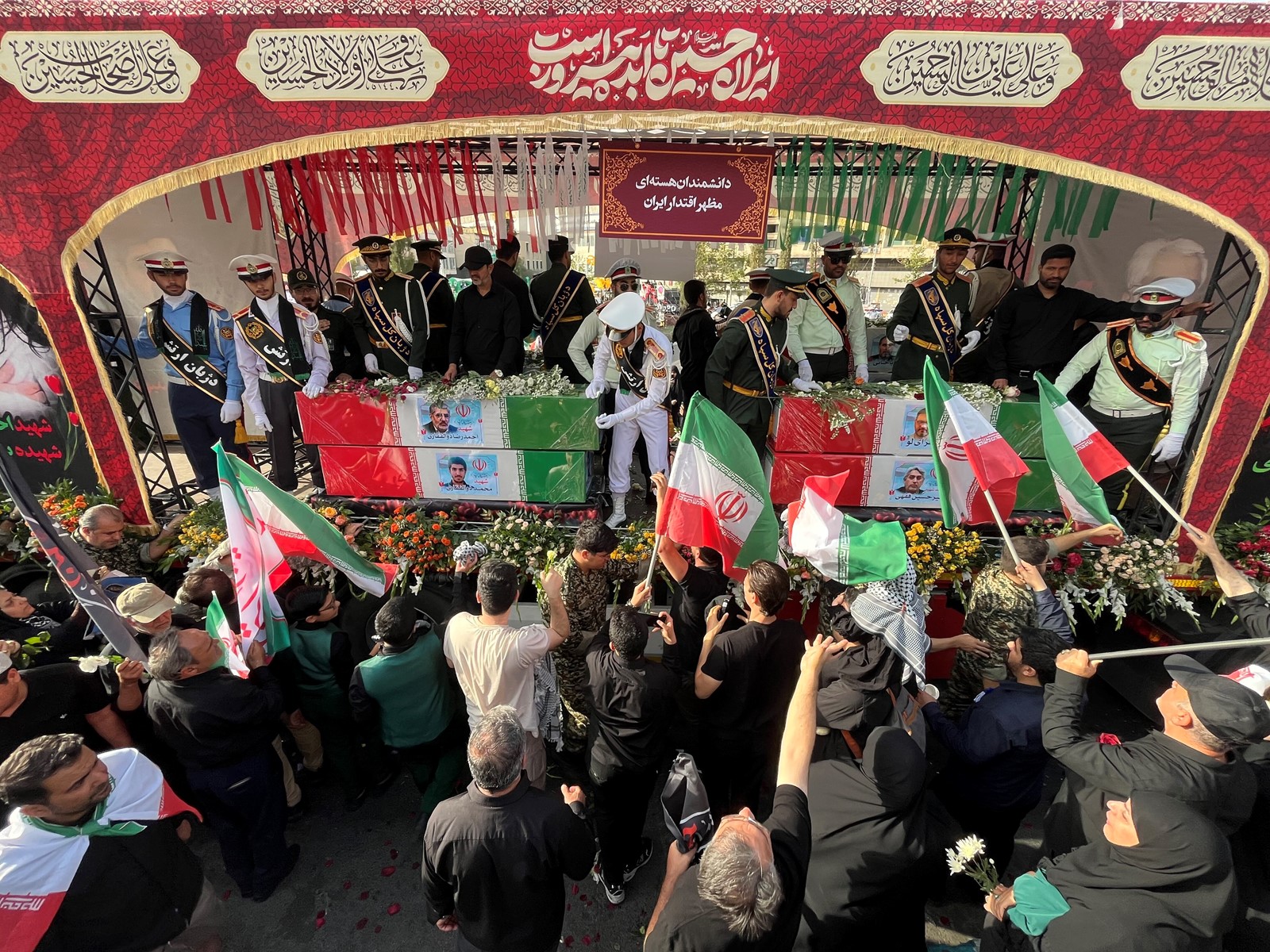
DUBAI, United Arab Emirates — Hundreds of thousands of mourners lined the streets of downtown Tehran on Saturday for the funeral of the head of the Revolutionary Guard and other top commanders and nuclear scientists killed during a 12-day war with Israel.
The caskets of Guard’s chief Gen. Hossein Salami, the head of the Guard’s ballistic missile program, Gen. Amir Ali Hajizadeh and others were driven on trucks along the capital’s Azadi Street as people in the crowds chanted: “Death to America” and “Death to Israel.”
Salami and Hajizadeh were both killed on the first day of the war, June 13, as Israel launched a war it said meant to destroy Iran’s nuclear program, specifically targeting military commanders, scientists and nuclear facilities.
State media reported more than 1 million people turned out for the funeral procession, which was impossible to independently confirm, but the dense crowd packed the main Tehran thoroughfare along the entire nearly 3 mile route.
There was no immediate sign of Iran’s Supreme Leader, Ayatollah Ali Khamenei, in the state broadcast of the funeral. Khamenei, who has not made a public appearance since before the outbreak of the war, has in past funerals held prayers for fallen commanders over their caskets before the open ceremonies, later aired on state television.
Iranian Foreign Minister Abbas Araghchi was on hand, and state television reported that Gen. Esmail Qaani, who heads the foreign wing of the Revolutionary Guard, the Quds Force, and Gen. Ali Shamkhani were also among the mourners.
Shamkhani, an adviser to Khamenei who was wounded in the first round of Israel’s attack and hospitalized, was shown in a civilian suit leaning on a cane in an image distributed on state television’s Telegram channel.
Iran’s Revolutionary Guard was created after its 1979 Islamic Revolution. Since it was established, it has evolved from a paramilitary, domestic security force to a transnational force that has come to the aid of Tehran’s allies in the Middle East.
Over 12 days before a ceasefire was declared on Tuesday, Israel claimed it killed around 30 Iranian commanders and 11 nuclear scientists, while hitting eight nuclear-related facilities and more than 720 military infrastructure sites. More than 1,000 people were killed, including at least 417 civilians, according to the Washington-based Human Rights Activists group.
Iran fired more than 550 ballistic missiles at Israel, most of which were intercepted, but those that got through caused damage in many areas and killed 28 people. Saturday’s ceremonies were the first public funerals for top commanders since the ceasefire, and Iranian state television reported that they were for 60 people in total,


 PREVIOUS ARTICLE
PREVIOUS ARTICLE
